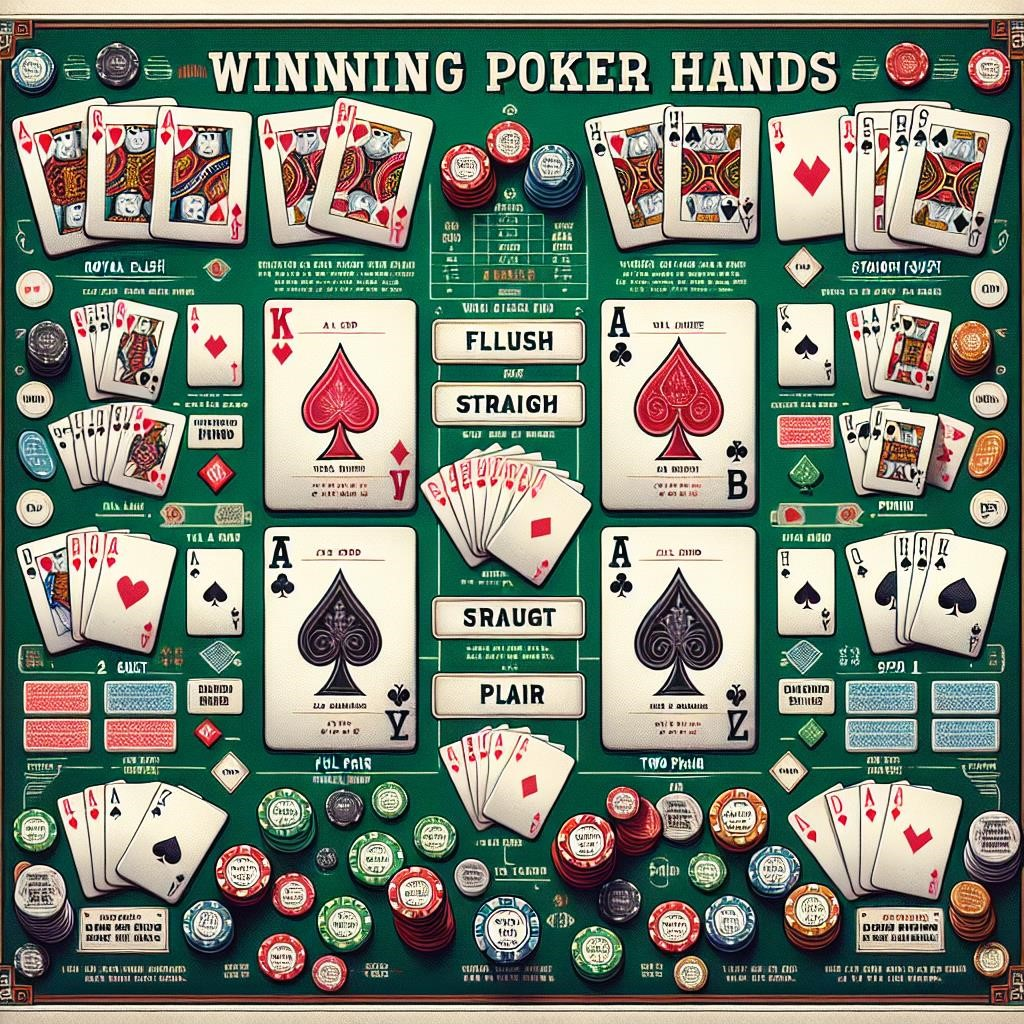Poker is a captivating game that combines skill, strategy, and a bit of luck․ Understanding the different winning hands in poker is essential for any player looking to improve their game․ In this article, we will explore the hierarchy of poker hands, strategies for winning, and tips to become a better player․
The Hierarchy of Poker Hands
In poker, hands are ranked based on the combination of cards a player has․ Here’s a list of the winning poker hands, from highest to lowest:
- Royal Flush: A, K, Q, J, 10 all of the same suit․
- Straight Flush: Five consecutive cards of the same suit․
- Four of a Kind: Four cards of the same rank․
- Full House: Three cards of one rank and two cards of another rank․
- Flush: Five cards of the same suit, not in sequence․
- Straight: Five consecutive cards of different suits․
- Three of a Kind: Three cards of the same rank․
- Two Pair: Two cards of one rank and two cards of another rank․
- One Pair: Two cards of the same rank․
- High Card: The highest card when no other hand is made․
Strategies for Winning with Poker Hands
Understanding the strength of your hand is crucial in poker․ Here are some strategies to maximize your chances of winning:
- Know the Odds: Familiarize yourself with the odds of hitting certain hands․ This knowledge helps you make informed decisions on betting and folding․
- Position is Key: Your position at the table can greatly impact your strategy․ Being in a late position allows you to see how your opponents act before making your move․
- Bluff Wisely: Bluffing can be an effective tool, but it should be used sparingly and strategically․ Know when to bluff and when to play your strong hands․
- Pay Attention to Opponents: Observe the betting patterns and behaviors of your opponents․ This can give you insights into the strength of their hands․
- Manage Your Bankroll: Set a budget for your gambling and stick to it․ This will help you play more strategically and avoid making impulsive decisions․
Common Mistakes to Avoid
Even seasoned players can fall into traps․ Here are some common mistakes to avoid:
- Playing Too Many Hands: It’s tempting to play every hand, but patience is vital․ Only play strong hands to improve your chances of winning․
- Ignoring Position: Failing to consider your position can lead to poor decisions․ Always factor in where you are at the table․
- Chasing Losses: Don’t increase your bets to try to win back losses․ This often leads to even bigger losses․
- Overvaluing Hands: Just because you have a strong hand doesn’t mean you should bet aggressively․ Assess the board and your opponents’ actions․
Winning at poker requires a combination of understanding the game, strategic thinking, and psychological insight․ By mastering the different winning poker hands and employing effective strategies, you can enhance your gameplay and increase your chances of success․ Remember, poker is not just about the cards you hold, but how you play them․
Whether you’re a beginner or a seasoned player, continuous learning and practice are key to becoming a formidable opponent in the world of poker․
